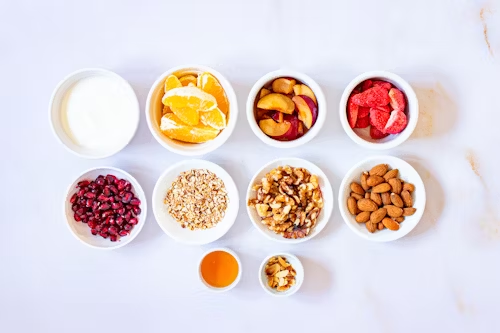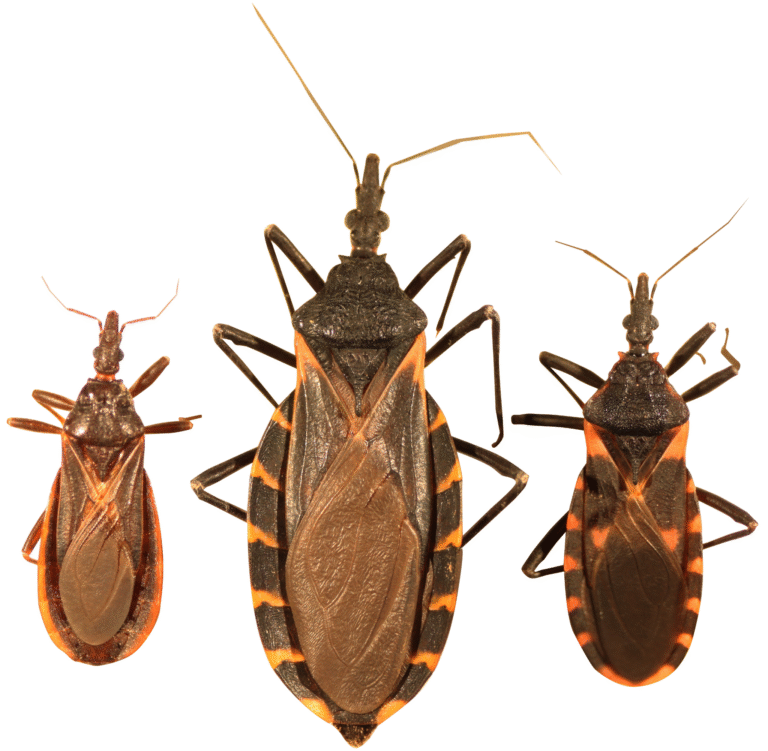As we grow older, the search for maintaining a sharp mind becomes more critical. Recent studies have illuminated the surprising benefits of combining daily protein with prebiotics. This powerful duo may help sharpen ageing brains, offering a ray of hope to those eager to preserve cognitive function. Let’s dive into how these essential nutrients are making a difference and what this could mean for our daily diet.
Introduction
Ageing is inevitable, but maintaining brain health is a challenge many of us face with increasing concern. In our fast-paced world, where mental acuity can directly impact the quality of life, exploring natural ways to support cognitive function is more important than ever. Recent research highlights the potential benefits of incorporating specific nutrients into our daily routine—particularly protein and prebiotics.
Overview of Brain Health in Aging
The ageing brain naturally experiences changes over time. Neurons may shrink, and communication between brain cells can slow down. However, emerging evidence suggests that certain dietary elements can mitigate these effects, ensuring that mental clarity and cognitive performance remain at their best well into our later years.
Importance of Diet in Cognitive Function
A well-balanced diet isn’t just about maintaining physical strength or managing weight; it’s also pivotal in sustaining brain health. Nutrients, especially proteins and prebiotics, are emerging as key players in promoting a healthy brain. With their unique properties, they work not only to fuel the brain but also to protect it from age-related decline.
Understanding the Aging Brain
Common Challenges in Aging Brains
Ageing brains face several challenges, including reduced synaptic plasticity, increased inflammation, and slower metabolic processes. These changes can lead to memory loss, decreased concentration, and a higher risk of neurodegenerative diseases such as Alzheimer’s and Parkinson’s. Understanding these challenges is the first step in developing strategies to combat cognitive decline.
The Role of Nutrition in Mitigating Cognitive Decline
The foods we eat influence brain function more than we might imagine. Nutrients provide the raw materials for neurotransmitter production and help maintain the structural integrity of brain cells. Research now suggests that by adjusting our diets, we can not only slow down cognitive decline but potentially improve brain performance, even in later life.
The Power of Protein
What is Protein?
Protein is one of the building blocks of life, composed of amino acids that are essential for the growth, repair, and maintenance of tissues. It plays a critical role in almost every bodily function, from muscle repair to hormone production, and is now gaining recognition for its role in brain health.
Protein’s Role in Brain Function and Structure
Proteins are vital for the production of neurotransmitters—the chemical messengers that allow brain cells to communicate. Amino acids like tryptophan, tyrosine, and glutamine contribute to mood regulation, focus, and overall cognitive function. Additionally, protein helps form and repair neural networks, ensuring that the brain remains resilient against age-related damage.
Prebiotics and Their Impact
Definition of Prebiotics
Prebiotics are a type of dietary fibre that feeds the beneficial bacteria in our gut. Unlike probiotics, which are live bacteria, prebiotics are non-digestible compounds that promote the growth of these healthful microorganisms. They play a fundamental role in maintaining a balanced gut microbiome.
How Prebiotics Support Gut and Brain Health
The gut-brain axis is a fascinating and complex communication system linking our digestive tract and central nervous system. Prebiotics help foster a healthy gut environment, which in turn can influence brain health by reducing inflammation and promoting the production of neurotransmitters. This bi-directional communication means that a healthy gut can lead to a healthier, sharper brain.
The Synergy Between Protein and Prebiotics
Complementary Benefits for Brain Health
When protein and prebiotics are consumed together, they create a synergy that benefits both the gut and the brain. While protein supplies the essential amino acids for neurotransmitter synthesis, prebiotics enhance the overall gut environment, allowing for better nutrient absorption and a reduction in systemic inflammation. This combination is proving to be a promising strategy for maintaining cognitive function as we age.
Mechanisms of Action in the Brain-Gut Axis
The brain-gut axis is a critical communication pathway, and its proper functioning is vital for mental health. Protein supports brain structure and function, while prebiotics help balance the gut microbiome. The improved gut health reduces the production of harmful inflammatory compounds, which might otherwise interfere with brain signalling and cognitive function. In essence, this duo works hand-in-hand to create a healthier internal environment, promoting brain resilience.
Spotlight on the Study
Study Overview and Objectives
A recent study has shed light on the potential of daily protein and prebiotic consumption to enhance cognitive function in ageing populations. Researchers set out to determine whether these dietary components could improve memory, attention, and overall brain function. The study involved older adults who were monitored over several months while integrating specific amounts of protein and prebiotics into their diets.
Key Findings and Implications
The study’s findings were quite promising. Participants who consumed a balanced diet enriched with high-quality protein and prebiotics demonstrated significant improvements in memory retention and cognitive agility. These results imply that such dietary modifications could serve as a non-invasive, natural strategy to combat the effects of ageing on the brain. This breakthrough encourages further exploration into personalized nutrition plans for cognitive health.
The Science Behind the Findings
Nutrient Metabolism and Brain Function
At the molecular level, proteins break down into amino acids that cross the blood-brain barrier, contributing to the synthesis of neurotransmitters such as dopamine and serotonin. These chemicals are essential for regulating mood, attention, and overall cognitive performance. On the other hand, prebiotics enhance the production of short-chain fatty acids (SCFAs) in the gut, which have anti-inflammatory properties and can influence brain function through neural pathways.
Neurotransmitters and Protein Intake
Neurotransmitters are the lifeblood of brain communication. They help relay signals between neurons and are crucial for everything from memory to mood regulation. Adequate protein intake ensures that the brain has a steady supply of the amino acids required to produce these critical neurotransmitters. This direct relationship between protein consumption and neurotransmitter synthesis forms the basis for understanding how diet can influence cognitive performance.
Practical Implications for Daily Diet
Incorporating High-Quality Protein
When it comes to protein, not all sources are created equal. Lean meats, fish, dairy, legumes, and nuts are excellent sources of high-quality protein. Incorporating these foods into every meal can help ensure that your brain receives the essential amino acids it needs to function optimally. For older adults, who may experience muscle loss and decreased nutrient absorption, a protein-rich diet is doubly important.
Daily Prebiotic-Rich Foods
Prebiotics are found in various foods that are both delicious and easy to incorporate into daily meals. Some of the best sources include garlic, onions, asparagus, bananas, and whole grains. These foods not only support a healthy gut microbiome but also contribute to the overall health of your brain. By adding these prebiotic-rich options to your shopping list, you can naturally boost your cognitive function over time.
Tips for a Brain-Healthy Diet
Meal Planning and Timing
Planning meals that incorporate both high-quality proteins and prebiotic-rich foods can be simpler than it seems. Start your day with a protein-packed breakfast—think Greek yoghurt with a sprinkle of fibre-rich oats or a smoothie with protein powder and banana. For lunch and dinner, include a lean protein source alongside vegetables that double as prebiotic providers, such as onions and garlic.
Simple Recipes and Snack Ideas
Imagine a delicious quinoa salad topped with grilled chicken, sprinkled with onions and a hint of garlic, or a hearty bean soup with a medley of vegetables. These meals not only taste great but also provide a nutritional boost that supports brain health. Snacks like a handful of nuts or a banana can also serve as quick sources of protein and prebiotics, keeping your brain fueled throughout the day.
Lifestyle Factors That Complement Diet
Physical Exercise and Cognitive Function
While diet plays a significant role in brain health, it isn’t the only factor. Regular physical exercise helps stimulate blood flow to the brain, encouraging the growth of new neural connections. Combining a nutritious diet with regular physical activity creates a holistic approach to cognitive health that can stave off age-related decline.
Sleep, Stress Management, and Brain Health
A balanced diet must be accompanied by other healthy lifestyle choices. Adequate sleep, stress management, and mindfulness practices are essential in maintaining a healthy brain. These practices help reduce inflammation and promote an optimal environment for the brain to process and store information. When combined with a protein and prebiotic-rich diet, these habits can enhance cognitive function and overall well-being.
Challenges and Considerations
Balancing Diet with Other Health Needs
One of the challenges in maintaining a brain-healthy diet is ensuring that it aligns with other health requirements. For instance, individuals with kidney issues may need to monitor their protein intake, while those with gastrointestinal sensitivities might have to choose their prebiotic sources carefully. Consulting with a healthcare professional can help tailor dietary choices to fit individual health needs.
Potential Barriers for Older Adults
For many older adults, the idea of changing long-established eating habits can be daunting. Budget constraints, limited access to fresh foods, and a lack of cooking skills may pose significant challenges. It’s important to remember that even small changes, such as incorporating an extra serving of protein or prebiotic-rich food daily, can lead to substantial long-term benefits for brain health.
Future Directions in Brain Health Research
Emerging Studies on Nutrients and Cognition
The study of nutrition and brain health is evolving rapidly. Researchers are continuously exploring how various nutrients interact with our brain cells, with new studies emerging that deepen our understanding of the brain-gut connection. The promising results from recent research on protein and prebiotics catalyze further studies aimed at unravelling the complexities of cognitive function in ageing populations.
The Role of Personalized Nutrition
With advancements in genomics and nutritional science, personalized nutrition is on the horizon. In the future, dietary recommendations might be customized based on an individual’s genetic makeup, lifestyle, and specific health needs. This personalized approach could maximize the benefits of nutrient intake, ensuring that everyone has the opportunity to maintain a sharp and healthy mind as they age.
Conclusion
Incorporating daily protein and prebiotics into your diet might be one of the simplest yet most effective ways to sharpen an ageing brain. The synergistic effects of these nutrients not only support the production of critical neurotransmitters but also promote a healthy gut environment, which is intimately linked to cognitive function. While challenges exist, especially for older adults, even modest dietary changes can pave the way for significant long-term benefits. As research continues to evolve, it’s clear that our diet plays a pivotal role in preserving brain health, offering a proactive way to combat the natural effects of ageing.
By embracing a diet rich in high-quality proteins and prebiotic foods, along with maintaining a balanced lifestyle through exercise, proper sleep, and stress management, you’re setting the stage for a vibrant, cognitively sharp future. So why not take that step today? Your brain—and your overall quality of life—will thank you.
FAQs
1. What are the best sources of high-quality protein for brain health?
Lean meats, fish, dairy, legumes, and nuts are excellent sources of high-quality protein. These foods provide essential amino acids that help support neurotransmitter production and overall brain function.
2. How do prebiotics contribute to cognitive health?
Prebiotics nourish the beneficial bacteria in your gut, promoting a balanced microbiome. This healthy gut environment supports brain health by reducing inflammation and aiding in the production of neurotransmitters, thanks to the brain-gut axis.
3. Can small dietary changes make a difference in cognitive function?
Absolutely. Even modest improvements, such as incorporating an extra serving of protein or prebiotic-rich food each day, can contribute to long-term cognitive benefits and help mitigate age-related decline.
4. Are there any potential risks to increasing protein or prebiotic intake?
While most people can safely increase their intake, individuals with specific health conditions, such as kidney issues or gastrointestinal sensitivities, should consult a healthcare professional to tailor their diet appropriately.
5. How do lifestyle factors like exercise and sleep complement a brain-healthy diet?
Regular exercise boosts blood flow to the brain, while adequate sleep and stress management reduce inflammation and support overall cognitive function. Combined with a nutrient-rich diet, these lifestyle factors create a comprehensive approach to maintaining brain health. Read more







